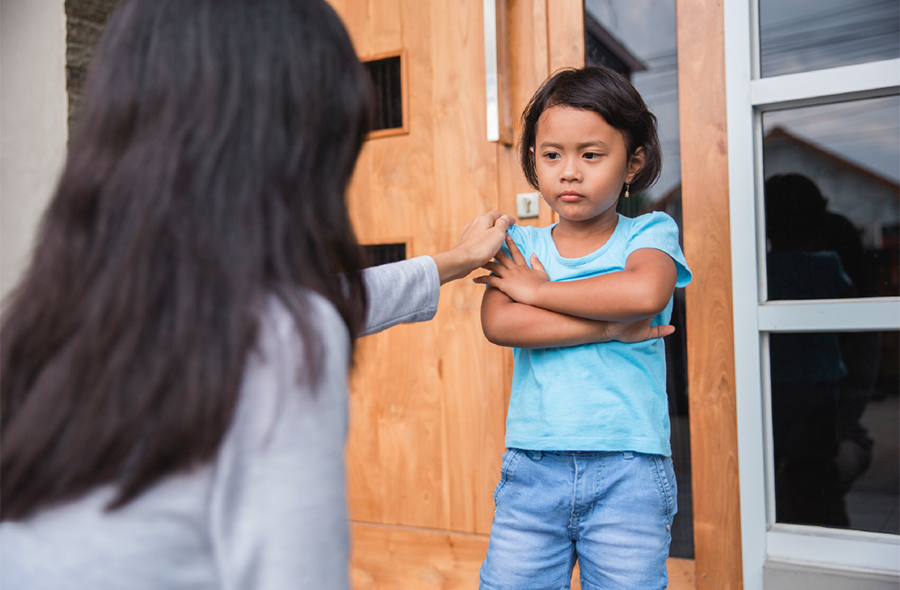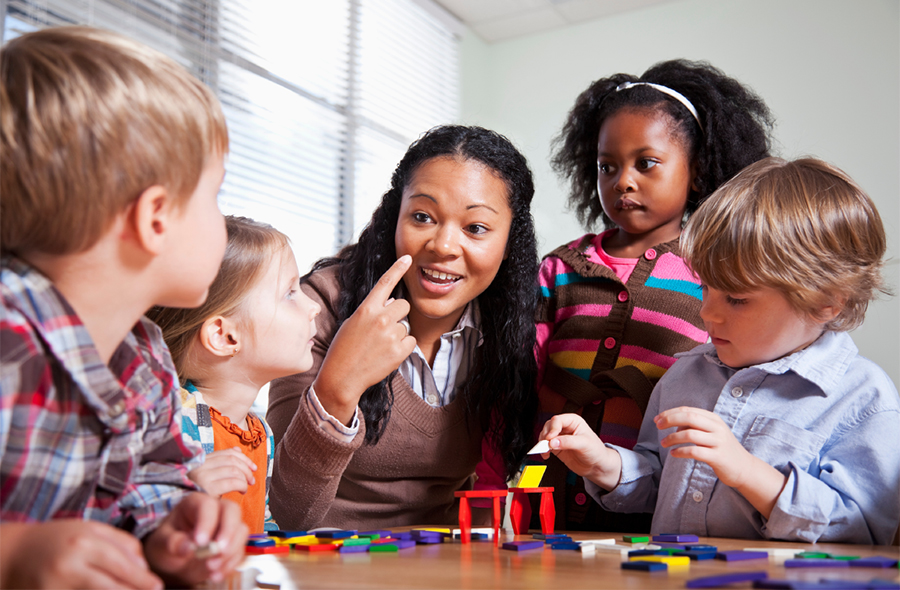Understanding how to create positive and developmentally appropriate behavioral expectations benefits everyone in an Early Childhood classroom community: students and teachers alike. Early Childhood Educators (ECEs) often identify managing children’s behaviors as one of the most challenging aspects of their jobs. Behavior expectations are guidelines that apply to all children and adults in the setting, outlining the general ways teachers would like children to act.
Ideally, behavior expectations are developed for the entire school or center, serving as a framework for teachers. Behavior expectations are always positively stated. They are positive and clear guidelines that proactively communicate what is expected of children. When expectations are developmentally appropriate and clear, children feel relaxed and can predict what is coming next.
Although behavior expectations and rules are often used interchangeably, they refer to different things.
Rules are when behavior expectations are applied to specific activities or contexts. For young children, rules for rules’ sake don’t usually succeed and have little meaning for children.
For example, a behavior expectation may be to respect each other. A classroom rule might be that students use inside or quieter voices when inside the classroom, raise their hands at circle time when they have ideas or answers, or use their words to express their feelings.
Present behavior expectations to children in a positive manner. Ensure that children understand and repeat the expectations regularly, particularly at the beginning of the school year or when a child is new to the classroom. Provide guidance to help children learn the expectations, utilizing tools such as posters, pictures, or stories.
We have all found ourselves in new situations and places where we felt uncomfortable and needed guidance to understand expectations and feel more comfortable.
In the early childhood classroom, the ECE is the guide, teaching children expectations to support their success. There are many reasons why children may struggle to learn all the behaviors expected of them. Perhaps they are new to school or new to a classroom. Perhaps the expectations are different at school than they are at home. There may also be differences between what’s expected at school and what’s expected at home.
When there is a mismatch between a child’s culture and the teacher’s or center’s culture, the teacher might perceive the child’s behavior as challenging. Research on how mothers of different ethnicities and social classes prepare their children for kindergarten indicates that all mothers prepare their children for school.

As ECEs, we must monitor our behavior to ensure we respond to children fairly and consistently. Reflect carefully on the details of when behavior difficulties occur. Some young children have problems with transitions and may need reminders, specific transition plans, or extra support from an adult or friend. It takes time to reflect and come up with a plan.
Here are some reflective questions to consider:
- What are the factors that surround this behavior? Time of day? Specific activities?
- Does the child have the language or communication skills to express their needs?
- Does the child want to avoid a situation or task that makes them uncomfortable or fearful?
- Has this child been trying to get attention for something for a while, and is this a way for them to get the attention they feel they need?
- Is your classroom or center culturally different from their routine?
- Are you meeting this child’s needs?
Greater consistency in behavior expectations within your classroom and center makes it easier to create a holistic environment supporting positive behaviors throughout a child’s day, as well as your own. An environment with clear behavior expectations helps children and adults feel safe and secure.
Expand your knowledge of early childhood education through my workshop services.
Elevate your understanding of early childhood education and child development with my engaging preschool education workshops tailored for both teachers and parents. These workshops provide valuable insights, practical strategies, and effective tools to enhance your role in nurturing young minds. Whether you’re an educator or a parent, these sessions aim to empower you with the knowledge and skills essential for fostering a positive learning environment. Dive deeper into the world of preschool education and child development by exploring my workshop offerings. For more valuable content and updates, follow me on Instagram and connect with me on LinkedIn. #EarlyYearsConsult
#EarlyChildhoodEducation #ChildDevelopment #PreschoolWorkshops #EducatorServices #ParentingTips #LearnAndGrow

